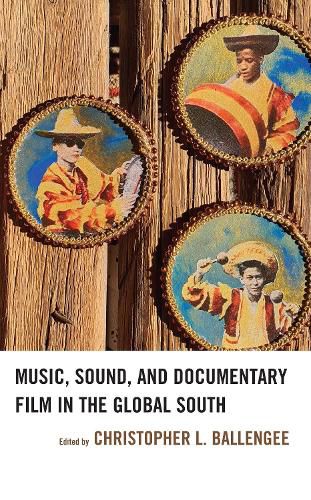Readings Newsletter
Become a Readings Member to make your shopping experience even easier.
Sign in or sign up for free!
You’re not far away from qualifying for FREE standard shipping within Australia
You’ve qualified for FREE standard shipping within Australia
The cart is loading…






Music, Sound, and Documentary Film in the Global South, edited by Christopher L. Ballengee, represents an important step toward thinking about the production and analysis of the soundscapes of documentary film, all while exploring a range of social, cultural, technological, and theoretical questions relevant to current trends in Global South studies. Written by a diverse set of authors, including filmmakers, academics, and cultural critics, the ten essays in this book provide fresh evaluations of the place of music and sound in documentary films outside the European-American milieu. On the whole, the authors illuminate how the invention of documentary film was at first a product of the colonialist project. Yet over time, access to filmmaking technologies led to the creation of documentary films relevant for local communities and national identities. In this sense, documentary film in the Global South might be broadly defined as a mode of personally or politically mediated storytelling that, by one route or another, has become a useful and recognizable means of memorializing traumatic histories and critiquing everyday lived experience. As the essays in this volume attest, close readings of documentary soundscapes provide fresh perspectives on ways of hearing and ways of being heard in the Global South.
$9.00 standard shipping within Australia
FREE standard shipping within Australia for orders over $100.00
Express & International shipping calculated at checkout
Music, Sound, and Documentary Film in the Global South, edited by Christopher L. Ballengee, represents an important step toward thinking about the production and analysis of the soundscapes of documentary film, all while exploring a range of social, cultural, technological, and theoretical questions relevant to current trends in Global South studies. Written by a diverse set of authors, including filmmakers, academics, and cultural critics, the ten essays in this book provide fresh evaluations of the place of music and sound in documentary films outside the European-American milieu. On the whole, the authors illuminate how the invention of documentary film was at first a product of the colonialist project. Yet over time, access to filmmaking technologies led to the creation of documentary films relevant for local communities and national identities. In this sense, documentary film in the Global South might be broadly defined as a mode of personally or politically mediated storytelling that, by one route or another, has become a useful and recognizable means of memorializing traumatic histories and critiquing everyday lived experience. As the essays in this volume attest, close readings of documentary soundscapes provide fresh perspectives on ways of hearing and ways of being heard in the Global South.